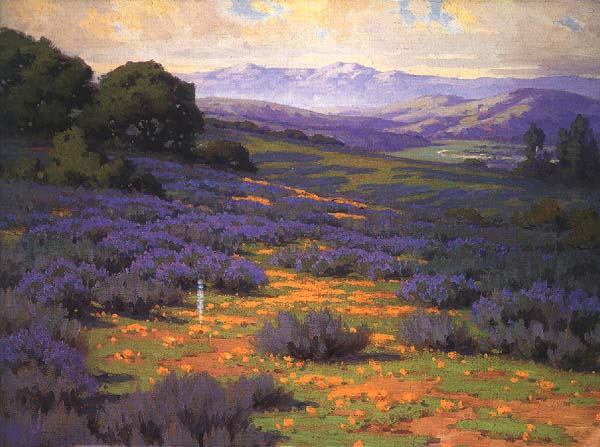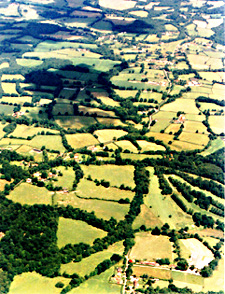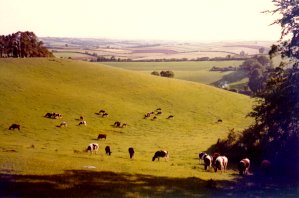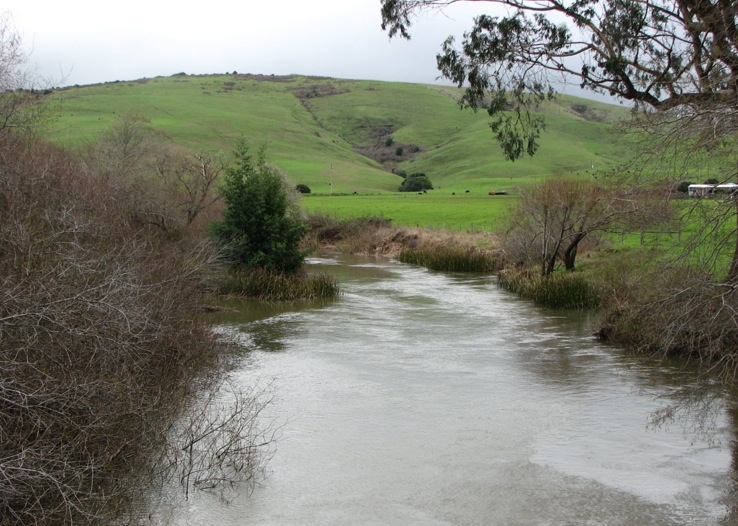
The impact of technological change on moral virtues.

Pastoral & agrarian values were once considered social virtues
Have we “lost contact with the primary element” as Jacques Ellul (1912-1994) says, with respect to the cost of and where our food comes from?
250 years ago Denis Diderot reminded readers that "Bacon regarded the history of the mechanical Arts as the most important branch of true Philosophy" (ART, Vol. 1, p. 714). Diderot also recognized the importance of integrating scientific knowledge with the mechanical arts. In his role as editor of the Encyclopedie, he noted the necessity of a strong background in natural history, mineralogy, mechanics, rational and experimental physics, and chemistry in order to understand the arts. Diderot also left a record of his own curiosity and a convincing statement of the importance and complexity of the arts.
There is a loss of touch (literally) with the agrarian (not just bucolic and pastoral imagery) world. But as important is the loss of sounds, sights and odors of the world where orchard, farm and field life were dictated by the animals as much as by the necessity of creating, sustaining, and annually renewing a source of dietary nourishment sufficient to meet human needs and appetites.
Denis Diderot, 1713 1784.
Diderot began the monumental undertaking that would eventually become the Encyclopédie ou Dictionnaire Raisonné des Sciences, des Arts et des Métiers (“Encyclopedia or Dictionary of the Sciences, the Arts, and the Professions”), published in a succession of volumes from 1751 to 1772.
A massive collection of 72,000 articles written by 160 eminent contributors (including notables like Voltaire, Rousseau, and Buffon), Diderot turned the encyclopedia into a compendium of knowledge vaster than anything that had ever been published before.
such as: http://www.georgianindex.net/Tools/lathes.html.
 Agrarian Revolution the transformation of British agriculture during the 18th century, characterized by the enclosure of common land and the introduction of technological innovations such as new crops and breeds of livestock, the seed drill, drainage, composting, and the rotation of crops.
Agrarian Revolution the transformation of British agriculture during the 18th century, characterized by the enclosure of common land and the introduction of technological innovations such as new crops and breeds of livestock, the seed drill, drainage, composting, and the rotation of crops.
Improved crop-growing methods emerged in the early 1700's, a retired English politician named Charles Townshend began to experiment with crop rotation. He found that turnips could be used as one of the four crops in a four-field rotation system. The other crops consisted of two grains, especially varieties of wheat; and a legume, such as alfalfa or clover. Each crop either added nutrients to the soil or absorbed different kinds and amounts of nutrients. Farmers therefore did not have to leave any land fallow, as in the two- and three-field rotation systems where one half to one third of arable land was left fallow -- that is, devoid of crops.
Townshend's experiments did not become well known during his lifetime, except to earn him the nickname "Turnip" Townshend. But in the late 1700's, an English nobleman named Thomas Coke produced greatly increased yields using Townshend's system. Coke encouraged other farmers to adopt the method, and it soon became widely used in England. The system enabled farmers to grow crops on all their land each year, which made farmland much more productive. Both Townshend and Coke lived in the county of Norfolk, and so the four-field rotation system became known as the Norfolk system.
Before the development of the four-field system, farmers could not raise enough forage to feed livestock through the winter. Most livestock therefore had to be slaughtered in the fall, and the meat was preserved with salt. But the four-field system greatly increased the production of forage crops, especially turnips and clover. As a result, farmers could produce fresh meat throughout the year, not only during the months when livestock could be turned out to pasture.
Advances in livestock breeding spread during the late 1700's, an English farmer named Robert Bakewell showed how livestock could be improved by intensively breeding animals with desirable traits. Bakewell produced improved breeds of cattle, horses, and sheep. He became best known for developing a breed of sheep that could be raised for meat as well as for wool. Earlier breeds of sheep were expensive to raise for meat because they fattened too slowly. As a result, most sheep were raised for wool only. But Bakewell's breed, called the Leicester, fattened quickly. It could therefore be raised for slaughter at a reasonable cost. The cost was so low, in fact, that mutton soon became the most popular meat in England.
The invention of new farm equipment promoted many inventions especially of the earliest significant inventor of the Agricultural Revolution: Jethro Tull, an English gentleman farmer. Tull lived during the late 1600's and early 1700's. But his inventions were not widely used until the late 1700's.
When Tull began his career, farmers still planted seed by sowing-that is, by hand scattering. To conserve seed and increase yields, inventors had tried to build a machine that would dig small trenches in the soil and deposit seeds in them. About 1700, Tull built the first such seed drill that worked. Actually, it was the first successful farm machine with inner moving parts, and so it became the ancestor of all modern agricultural machinery.
![]()
America
"The pastoral ideal has been used to define the meaning of America . . . and not yet lost its hold upon the native imagination."
(3)
"begin a new life in a fresh, green landscape"
Pastoral ideal as both a literary device and a political ideology and it was comprised of one part:
popular sentimentality and another part: imaginative complexity.
"the felicities and miseries can be reconciled together."
(45)
"Few recognized that a most striking fact about the New World was its baffling hospitality to radically opposed interpretations."
"The paradox was to be a cardinal subject of our national literature."
“….It is a serene partnership. In the pastoral economy nature supplies most of the herdsman’s needs and, even better, nature does virtually all of the work.
 A similar accommodation with the idealized landscape is the basis for the herdsman’s less tangible satisfactions: the woods ‘echo back’ the notes of his pipe. It is as if the consciousness of the musician shared a principle of order with the landscape and, indeed, the external universe. The echo, a recurrent device in pastoral, is another metaphor of reciprocity. It evokes that sense of relatedness between man and not-man which lends a metaphysical aspect to the mode; it is a hint of the quasi-religious experience to be developed in the romantic pastoralism of Wordsworth, Emerson and Thoreau. Hence, the pastoral ideal is an embodiment of what Lovejoy calls ‘semi-primitivism”; it is located in a middle ground somewhere ‘between,’ yet in a transcendent relation to, the opposing forces of civilization and nature.11”
A similar accommodation with the idealized landscape is the basis for the herdsman’s less tangible satisfactions: the woods ‘echo back’ the notes of his pipe. It is as if the consciousness of the musician shared a principle of order with the landscape and, indeed, the external universe. The echo, a recurrent device in pastoral, is another metaphor of reciprocity. It evokes that sense of relatedness between man and not-man which lends a metaphysical aspect to the mode; it is a hint of the quasi-religious experience to be developed in the romantic pastoralism of Wordsworth, Emerson and Thoreau. Hence, the pastoral ideal is an embodiment of what Lovejoy calls ‘semi-primitivism”; it is located in a middle ground somewhere ‘between,’ yet in a transcendent relation to, the opposing forces of civilization and nature.11”
Leo Marx, p. 23, ¶1; §3-9:
![]()
The Agricultural Revolution was brought about mainly by three developments. They were (1) improved crop-growing methods; (2) advances in livestock breeding; and (3) the invention of new farm equipment.
bucolic,
from the Greek word for oxen and thus herdsmen, referring to a pleasant aspect of country life, the picturesque countryside.

morality,
a particular system of values and principles of conduct, especially one held by a specified person or society. Thomas Jefferson's famous statement that "all men are created equal and endowed by their creator. . . . " in the Declaration of Independence (1776) is an expression of morality, especially referenced by Abraham Lincoln eighty- seven years later in his oft quoted, but little understood, Gettysburg Address.
Ancient morality differs appreciably from our current notions since the institution of slavery was considered from antiquity a necessity, if not a fact of life. Much like keeping stock animals for labor, fabric, fuel and food in agrarian dominated economies of that time, slaves were considered essential and slavery was viewed as the aboriginal human condition from which free persons arose. This is the opposite of Jefferson's statement that humans in the state of nature are divinely endowed by birth with freedom.
referring to the country as opposed to the city (urban area) in general; farmers and farmland in particular. More specifically applied to the grazing of sheep and cattle and the consequent impact of herding on both landscape and the entire land system depending on allocating fields to stock raising, year after year. Associated with shepherds and applied to the early Christian conception of Christ.
These terms, value, values or value systems, imply ethos, morality, or ethics but are also criticized by some for lacking the depth and historicity of those terms such as mores, morals, or ethical imagination. Emerging as the term did in the 1960s, values can have meanings associated with images of industrial control. Explicitly derived from the work of Dr. Clare Graves (1914-1986) "Value Systems and their Relation to Managerial Controls and Organizational Viability," paper presented before the College of Management Philosophy, The Institute of Management Sciences, 1965. Graves was a professor of psychology at Union College who was a specialist in the theory of human personality as it related to medical and organizational problems.
virtues, virtue,
is defined as any behavior showing high moral standards, conduct that is not likely to inflict harm on oneself or another.
Tools of Toil: what to read. Tools are historical building blocks of technology.